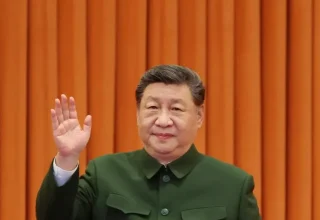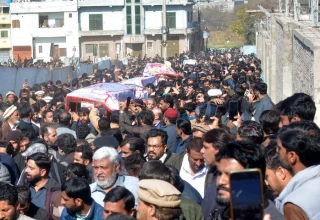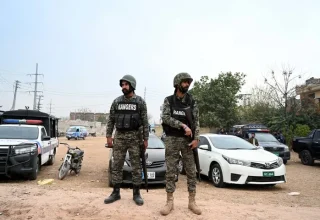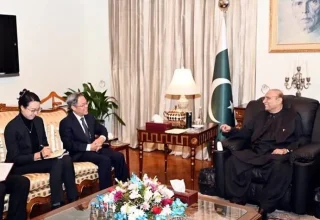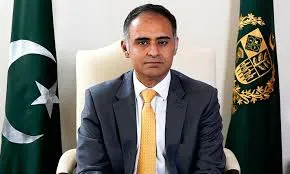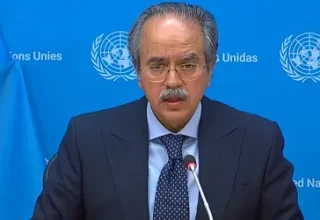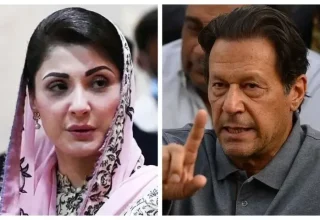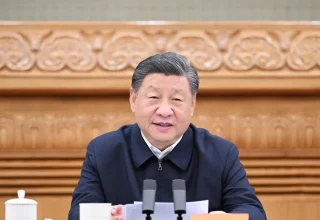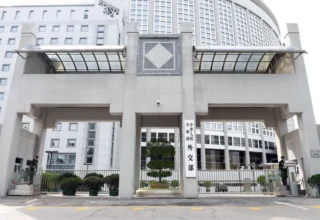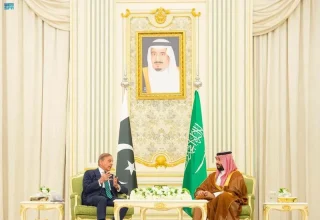
RIYADH: The signing of the Strategic Mutual Defence Agreement between Saudi Arabia and Pakistan on Wednesday marks a significant turning point in regional security, analysts said.
Under the agreement, any attack on either country will be considered “an aggression against both,” the Saudi Press Agency reported.
The agreement comes at a critical time, as two years of war in Gaza and its spillover have reshaped regional politics. Israel’s escalating aggression, including its expanding offensive in the Gaza Strip and strikes on Arab states, which culminated in last week’s attack on Qatar, a neighbor of Saudi Arabia, has raised security concerns among the Gulf states.
WHAT’S THE PACT ABOUT?
Saudi Crown Prince and Prime Minister Mohammed bin Salman Al Saud and visiting Pakistani Prime Minister Shehbaz Sharif said in a joint statement after their talks that the pact reflects the two countries’ shared commitment to strengthening national security and promoting peace in the region and beyond.
Saudi political analyst Munif Al-Harbi said the agreement reflects a shared perception of risk, noting that the clause stating “any attack on one of the two states is considered an attack on the other” could imply that Pakistan’s nuclear arsenal could be viewed as part of a joint deterrence umbrella with Saudi Arabia.
Saudi columnist Rasikh Al Khashmiri wrote on Al Arabiya’s website that the pact extends beyond defense, highlighting three dimensions: the growing link between defense and the economy; the potential for deeper institutional military cooperation, including intelligence sharing, joint planning and interoperability; and the fact that the agreement has not come at the expense of economic relations with other partners, indicating Saudi Arabia’s careful balance in foreign policy.
WHY IS THE PACT IMPORTANT?
Saudi political analyst Ali Jamalo called the agreement an “important step” amid rapidly evolving regional developments, pointing out that Pakistan’s status as a nuclear power gives the pact additional strategic weight and shifts the balance of regional deterrence.
Abdullah Al Huwaihi, a Bahrain-based regional activist, told Xinhua that Saudi Arabia is a central player in Arab and Islamic affairs, while Pakistan, a nuclear-armed state with one of the largest standing armies in the Muslim world, together with the kingdom, projects a formidable deterrent capability.
“This distinguished cooperation sends a strong message to anyone who seeks to undermine the security of the two countries,” noted former Saudi ambassador to Pakistan Ali Awadh Asiri.
Salem Al-Yami, a former adviser at the Saudi Ministry of Foreign Affairs, said military cooperation between the two countries is not new, but the current agreement “gave it a comprehensive character,” emphasizing that the timing of the pact is important amid geopolitical changes and declining confidence in international guarantees.
Abdulaziz Alshaabani, another Saudi political analyst, said the agreement strengthens Saudi Arabia’s regional posture, opening horizons for a strategic partnership that provides a strong deterrent element and supports national security amid accelerating regional challenges.
However, Li Shijun, a scholar at the China-Arab Research Center on Reform and Development, cautioned against over-interpreting the move, stressing that the agreement is neither a spur-of-the-moment decision nor a targeted response to a specific event.
Li told Xinhua that Saudi Arabia has shown strong interest in developing relations with Pakistan in recent years, considering ideological, geographical, energy and security factors. Besides mutual support on core interests, Saudi Arabia has also pledged substantial loans and expanded investment in Pakistan, the significance of which is evident.
“Therefore, the conclusion of the ‘mutual defence’ agreement between the two countries is ultimately a natural result of the diversification of Saudi Arabia’s security and defence policy and the deepening of Saudi-Pakistani relations into the security field,” Li added.
“This move led by Saudi Arabia is conducive to promoting the discussion and practice of a ‘collective defence’ concept among Gulf Cooperation Council countries,” Li said.


